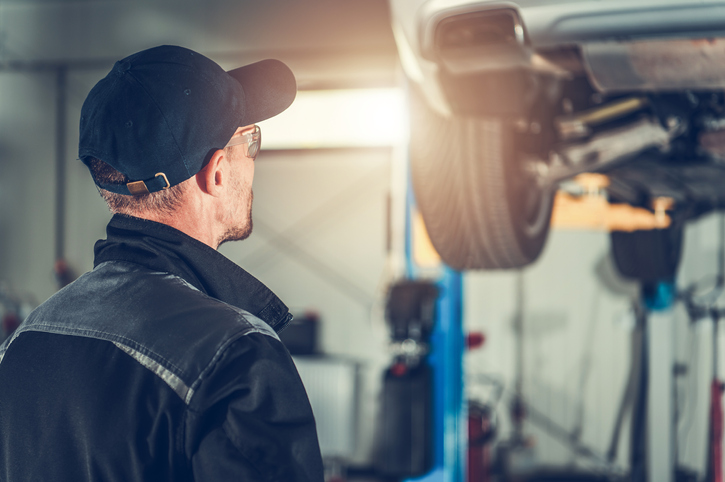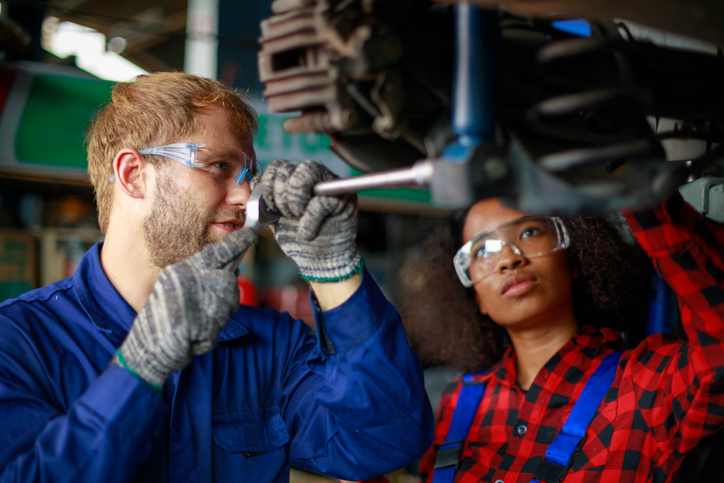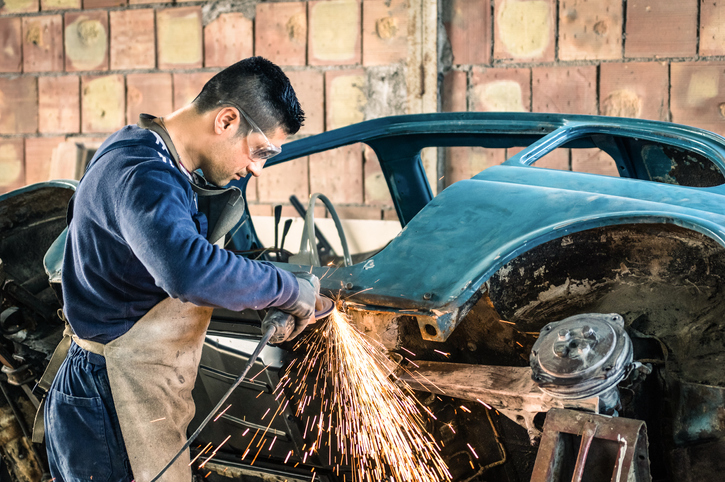If you have a passion for cars, love working with your hands, and enjoy problem-solving, then working in the automotive industry could be the perfect career for you.
Part of this lucrative and highly demanded career also includes being surrounded by heavy machinery, power tools, and hazardous chemicals daily. This may put you at a higher risk of workplace injuries if you do not proactively protect yourself.
Read on to learn about 5 of the most common auto shop hazards and how to steer clear of them.
1. Beware of Slips, Trips, and Falls After Auto Mechanic Training
Oil, grease, and transmission fluid are just some of the agents that cause slips in the workplace. Be sure to clean up spills when they happen, and to use safety cones to alert others of unsafe areas. Also, keep yourself protected by investing in a pair of slip-resistant shoes.
A cluttered shop not only makes it difficult to find what you’re looking for but also creates unnecessary trip and fall hazards. Maintain a clean and organized work area and be sure to put things away immediately when you’re done with them.
Falls from great heights account for the most serious injuries in auto shops. During auto mechanic training, you will learn how to safely operate various types of equipment you’ll encounter daily in your career. Never use unsafe equipment and always ask for assistance when needed.

2. Strains and Sprains Can Occur During Your Auto Career
Frequent heavy lifting can put strains on certain parts of your body. It’s highly recommended to warm up with stretches to get your muscles warm before your shift. Also, consider using hoists, a dolly or other mechanical aids when needed. Most importantly, feel confident to ask for help if something is too big or heavy to carry on your own.
The repetitive motions of using manual tools can also cause strains on your body. Having another worker assist when needed, using the proper tools and machinery, and rotating tasks are all ways you can proactively avoid this workplace hazard.
3. You’ll Be Exposed to Hazardous Chemicals and Particles
An essential aspect of many auto careers is learning how to safely handle and protect yourself from hazardous chemicals and particles. Much of this comes down to using protective personal equipment (PPE).
Wearing safety glasses will shield your eyes whether you are under a car, using a grinder, or welding. Wearing gloves and a protective uniform covering your arms and legs will guard you against skin irritation and chemical burns. Many hazardous chemicals are also extremely flammable. Be sure that you’re aware of where the fire extinguishers are located in the shop.
Chemicals should be labelled appropriately, with explanations of how to safely handle them and what to do in case of exposure. Also, be sure to follow the guidelines for the safe disposal of chemicals.

4. Avoid Mechanical Injuries
Mechanical injuries can be the most traumatizing and could result in serious injury without the proper precautions.
Even if an engine seems to be in perfect working order, you should never put your hands or tools near an engine while it is running. Make sure the car is off before working on it.
Car lifts and compressors should always have a certificate of inspection. If you ever are unsure of the safety of heavy machinery, don’t use it. As well, always make sure you keep the guards on when using power tools and ask for guidance or clarification if you need it.
5. Shutting Off Power Supply Can Help You Avoid Electrocution
Be sure that you cut off the power supply before working on a car. Disconnect the battery when working on electrical systems or near wiring. Also, ensure the key is out of the ignition before repairs are initiated, as leaving it in can draw an electrical charge from the battery.
And once again, never hesitate to ask for help if you are unsure of something or don’t feel completely confident doing it.
Our pre-apprenticeship program offers a hands-on approach combined with in-class theory to cultivate confident graduates that are ready to take the next step toward their auto mechanic careers.
Do you want to learn more about our automotive trade school?
Contact ATC Cambridge today!


